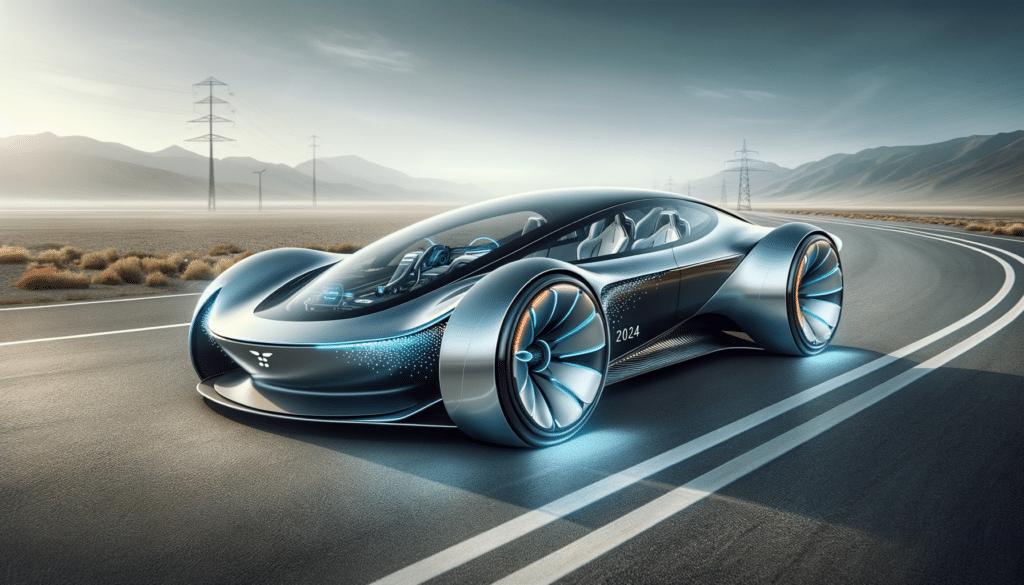The Rise of Electric Cars in 2024
As the world continues its shift towards sustainable energy solutions, electric cars have emerged as a pivotal element in reducing carbon emissions and promoting environmental health. The year 2024 marks a significant milestone in the evolution of electric vehicles (EVs), with manufacturers rolling out models that are not only more efficient but also more affordable and accessible to the general public. This surge in electric car production is driven by advancements in battery technology, government incentives, and a growing consumer preference for eco-friendly transportation options.
In 2024, electric cars are no longer a niche product. They have become a mainstream choice for consumers looking to balance performance with sustainability. With significant improvements in range, charging infrastructure, and vehicle design, electric cars are poised to dominate the automotive market. The commitment of major automakers to electrification, coupled with policy support from governments worldwide, is accelerating the transition from traditional internal combustion engines to electric powertrains.
Technological Innovations in 2024 Electric Cars
The technological landscape of electric cars in 2024 is characterized by remarkable innovations that enhance both the driving experience and the vehicle’s efficiency. Key advancements include:
- Battery Technology: New battery chemistries and manufacturing techniques have significantly increased energy density, resulting in longer range and shorter charging times.
- Autonomous Driving Features: Many 2024 models are equipped with advanced driver-assistance systems (ADAS) that offer semi-autonomous driving capabilities, enhancing safety and convenience.
- Connectivity and Infotainment: Enhanced connectivity features allow for seamless integration with smart devices, offering real-time updates and personalized driving experiences.
These innovations not only improve the functionality of electric cars but also make them more appealing to a broader audience, paving the way for increased adoption and market growth.
Comparing 2024 Electric Cars with Traditional Vehicles
The comparison between electric cars and traditional vehicles in 2024 highlights several advantages of EVs over their gasoline counterparts. These include:
- Environmental Impact: Electric cars produce zero tailpipe emissions, significantly reducing air pollution and contributing to cleaner urban environments.
- Cost Efficiency: With lower maintenance costs and reduced fuel expenses, electric cars offer long-term savings for consumers.
- Performance: Electric vehicles provide instant torque and smooth acceleration, delivering a dynamic driving experience that is often superior to traditional cars.
While the initial purchase price of electric cars may still be higher than that of conventional vehicles, the total cost of ownership is becoming increasingly competitive, making them a viable option for many consumers.
Challenges and Opportunities in the Electric Car Market
Despite the promising outlook, the electric car market in 2024 faces several challenges that need to be addressed to ensure sustained growth. Key challenges include:
- Infrastructure Development: The expansion of charging networks is crucial to support the growing number of electric vehicles on the road.
- Battery Recycling: Developing efficient recycling processes for used batteries is essential to minimize environmental impact and resource depletion.
- Consumer Education: Increasing awareness and understanding of electric vehicles’ benefits and capabilities is vital to overcoming skepticism and driving adoption.
Conversely, these challenges also present opportunities for innovation and collaboration among stakeholders, including governments, manufacturers, and technology providers, to create a more sustainable and efficient transportation ecosystem.
The Future of Electric Cars Beyond 2024
Looking beyond 2024, the future of electric cars is bright, with continuous advancements in technology and infrastructure expected to drive further growth and transformation in the automotive industry. As battery costs continue to decrease and energy storage capacities increase, electric vehicles will become even more accessible to a wider audience.
The integration of renewable energy sources into the charging infrastructure will further enhance the sustainability of electric cars, solidifying their role as a cornerstone of the global effort to combat climate change. Additionally, the development of new business models, such as vehicle-to-grid (V2G) technology, will enable electric cars to play a more active role in energy management and grid stability.
Overall, the 2024 electric car revolution is just the beginning of a transformative journey towards a cleaner, more efficient, and more sustainable future in transportation.




